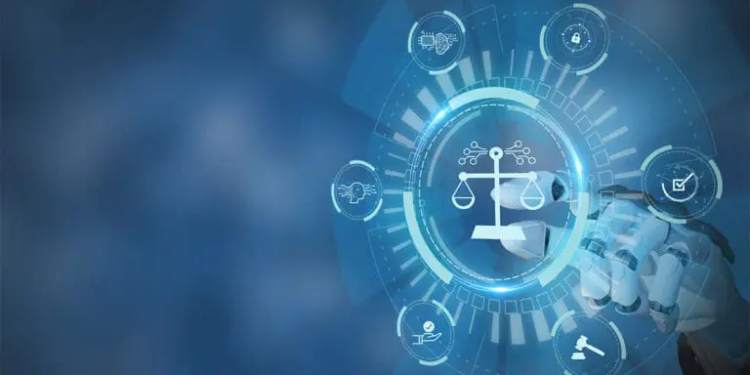The analog world is slowly becoming a thing of the past. We have long stopped using wired communication for regular users or writing letters on paper. With each passing day, month, and year, we are becoming more and more technologically dependent. Almost all of our data is stored in cloud services, we use paper money less and less, and we’re increasingly enlisting the help of artificial intelligence for everyday tasks. Although AI cannot always provide adequate assistance and, for example, when writing a high-quality student paper, one cannot do without the help of a research paper writer; in everyday tasks and small decisions, we communicate more and more with programs than with living people.
Voice assistants and smart homes are already as commonplace as radio and television. But along with the comfort that gives access to technology comes new challenges and new problems to solve. Ethics in the world of technology, where all data about us is formally protected but nevertheless can be obtained criminally from anywhere in the world, has become an important topic, as it affects both individual rights and global issues of fairness, security, and transparency. Also, there are emerging challenges to the existence of certain professions and the ethics of open data use.
Ethics of Data Use
Every time you visit any website, you agree that it collects data about your visit in so-called cookies. When you purchase in an online store, the site automatically records your actions for further market research and many more examples. Simply put, as soon as you go online from an unsecured channel, you become visible to the world that just wants to use your interests for business development and, in the case of criminals, who can use your personal data. Privacy issues become especially acute against the backdrop of regular data breaches when information about millions of people ends up in the hands of criminals.
The story of Facebook in 2018, when data from more than 87 million users was compromised, is still fresh in our minds. Numerous courts and ethical proceedings have again proven that ethics in the digital world needs to be improved and monitored.
Moral Dilemmas in the Age of AI Development
Artificial intelligence, despite its amazing capabilities, raises many moral questions. Many functions that humans perform have been transferred to the responsibility of artificial intelligence. These include developing marketing strategies, creating content plans, and analyzing business strategies. AI is used to analyze resumes and find people for jobs. According to the International Monetary Fund, about 40% of professions worldwide, regardless of qualifications and level of employees, are influenced by AI. Meanwhile, analytical data from McKinsey claims that in 5 years, AI can replace about 800 million jobs worldwide.
At the same time, AI is used in very responsible areas such as microtechnology and medicine, and the ethical question of who should be responsible in case of program errors has not been fully resolved.
Ethics of Social Media Use
Living in the digital world of social media has a long history but has reached its peak in the last five years. Psychiatric associations claim that social media addiction or so-called “likes” addiction is the real psychological problem of the 21st century. Patient complaints of depressed moods, anxiety, and loneliness due to the influence of social media have increased ten times. Another important aspect of social media ethics is its influence on people’s opinions. To some extent, social media has replaced the news media, where everyone can be a “journalist” and opinion maker. The factories of false news and manipulation of the population, especially in the run-up to the elections on social media, also point to an ethical problem in this field.
Information should be consumed using critical thinking. Imagine that you are reading the news as a conventional review, for example, researchpaperwriter review. You should not blindly trust one source. But if the information is gathered from various places and confirmed by several checks, you can already pay attention to it. And that’s how reviewers who provide information about the quality of writing services work.
The Digital Right to Privacy
Nowadays, user data can be collected from almost anything if desired. This includes phones, smart watches, cars, and even refrigerators. Companies and governments can use this data to monitor users. On the one hand, this allows for better services and security, but on the other hand, it violates the right to privacy.
Modern users should realize that their data can be used for various purposes and protect their rights to privacy. It is worth revealing minimal information about oneself online, and it is best to use complex passwords, two-step authentication, and VPN-type secure connection channels.
Ethics of Accessibility and Uniqueness
As we have already mentioned, artificial intelligence is replacing many jobs and doing the work of humans. At the same time, its use has expanded widely beyond the boundaries of conditional computing and analysis. Artificial intelligence is used in creativity, learning, journalism, and writing. And the boundaries of its acceptable use are extremely blurred and not established. Is an essay written by a program legitimate if the information is true and the student has learned it? Can physics or math homework be done using programs that solve formulaic problems? To what extent can templates and references be used for paintings or novels created by artificial intelligence?
There are no unambiguous and clear answers to these questions. Everyone is now setting boundaries for himself. Both in creativity and in the educational environment, there are serious discussions on this topic.
Conclusion
Ethics in the world of technology is a broad topic. It concerns both the use of personal data and the overuse of artificial intelligence. Online data security, digital hygiene, and ethical control of AI are the main issues that concern the ethics of the digital world at the moment. Understanding the ethical aspects will help users not only protect themselves but also participate in creating a fairer and more transparent digital world.


![7 Best POS Software in the UK [2026 Edition]](https://todaynews.co.uk/wp-content/uploads/2026/02/7-Best-POS-Software-in-the-UK-2026-Edition-360x180.png)





















































![7 Best POS Software in the UK [2026 Edition]](https://todaynews.co.uk/wp-content/uploads/2026/02/7-Best-POS-Software-in-the-UK-2026-Edition-120x86.png)

![7 Best POS Software in the UK [2026 Edition]](https://todaynews.co.uk/wp-content/uploads/2026/02/7-Best-POS-Software-in-the-UK-2026-Edition-350x250.png)


















